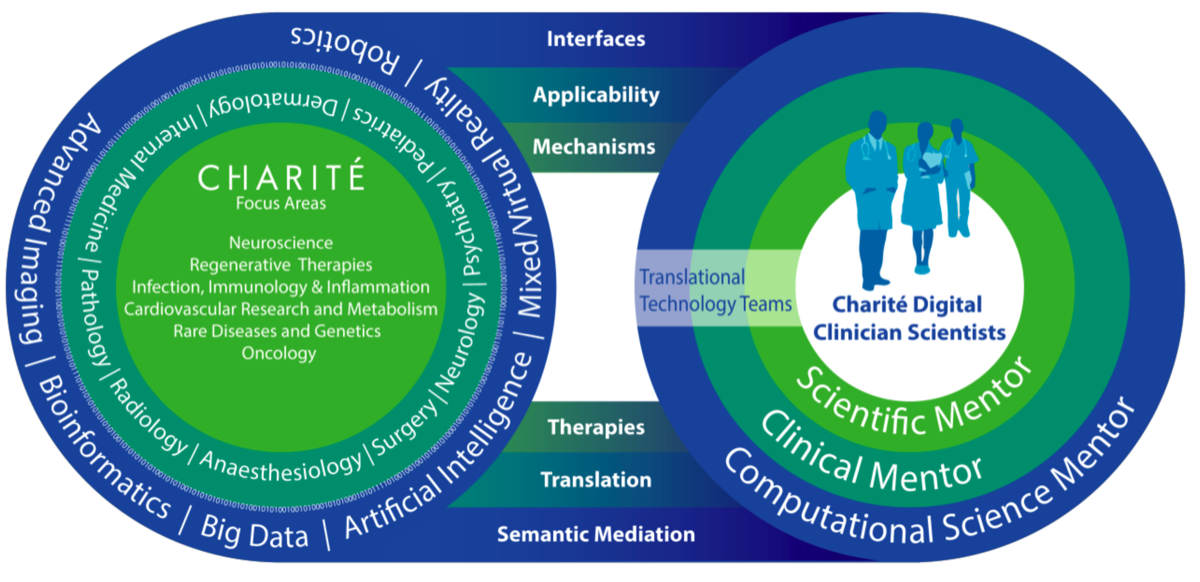Charité Digital Clinician Scientist Pilot Program (D-CSP)
The Deutsche Forschungsgemeinschaft (DFG) will fund the Charité Digital Clinician Scientist Pilot Program (D-CSP). The ideas is to improve and safeguard the current BIH Charité Clinician Scientist Program by building an additional structure for a novel “digital science” driven career track to prepare academic clinicians for the challenges of the emerging technological transformation of medicine.

Designated Spokesperson is Prof. Dr. Duska Dragun. Co-applicants are the NeuroCure Cluster of Excellence, Department of Experimental Neurology, Department of Pediatric Oncology and Hematology, Department of Radiology and Pediatric Radiology, Department of Surgery, Berlin Institute for Medical Systems Biology (BIMSB), Institute of Medical Biometrics and Clinical Epidemiology, Department of Neurology and Experimental Neurology, and the Department of Anesthesiology and Intensive Care Medicine.
With the changing dynamics in biomedical research having fully entered into the digital era, it is becoming increasingly clear after seven years of experience that we need more dedicated efforts to create opportunities by establishing stronger interfaces with physics, mathematics, systems biology, and computational sciences for future generations of Clinician Scientists. The newly proposed research and educational structure for integrating these new areas of expertise into the established CSP should act as a “central processing unit” to facilitate biomedical knowledge derived from a variety of clinical disciplines supported by leading technology experts to address the specific challenges of data-driven medicine in the future.
With the changing dynamics in biomedical research having fully entered into the digital era, it is becoming increasingly clear after seven years of experience that we need more dedicated efforts to create opportunities by establishing stronger interfaces with physics, mathematics, systems biology, and computational sciences for future generations of Clinician Scientists. The newly proposed research and educational structure for integrating these new areas of expertise into the established CSP should act as a “central processing unit” to facilitate biomedical knowledge derived from a variety of clinical disciplines supported by leading technology experts to address the specific challenges of data-driven medicine in the future.
- Precision medicine in cancer and beyond,
- Systems biology,
- Big data science and decision support systems,
- Quantitative imaging,
- Computational neuroscience and brain simulation, and
- Augmented, mixed and virtual reality in surgery